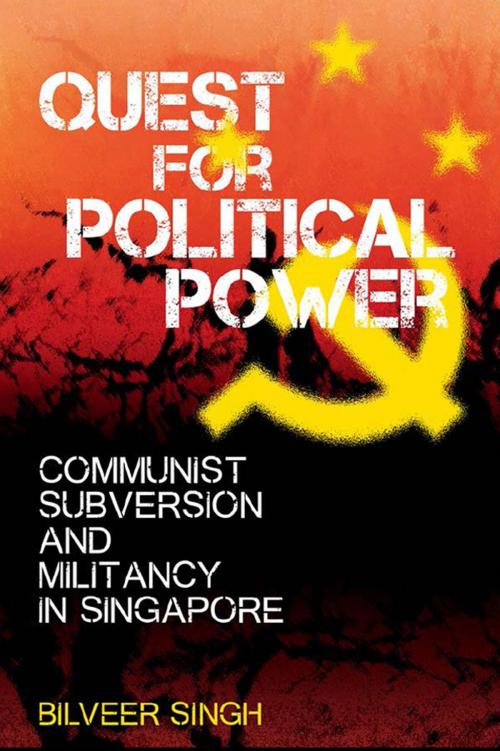Quest for Political Power
Communist Subversion and Militancy in Singapore
Nonfiction, Social & Cultural Studies, Political Science, Government, Communism & Socialism| Author: | Bilveer Singh | ISBN: | 9789814634496 |
| Publisher: | Marshall Cavendish International | Publication: | December 9, 2014 |
| Imprint: | MarshallCavendishEditions | Language: | English |
| Author: | Bilveer Singh |
| ISBN: | 9789814634496 |
| Publisher: | Marshall Cavendish International |
| Publication: | December 9, 2014 |
| Imprint: | MarshallCavendishEditions |
| Language: | English |
The history of communism in Malaya (including Singapore) almost coincided with the rise and fall of communism worldwide, best epitomized in Europe by the fall of the Berlin Wall in 1989. Operating through the Malayan Communist Party, communism posed an existential threat to Malaya. While the communist threat in peninsular Malaya was manifested dramatically in armed struggle with guerrillas in the jungle, in Singapore it was primarily in the form of united front subversive activities, interspersed with episodes of violence and assassinations. This new book examines the MCP’s quest for political power in Singapore in the midst of a raging Cold War between communism and the free world, with particular focus on events in the 1950s and 1960s. From its close collaboration with the two leading communist great powers (USSR and China) to its united front strategy of infiltrating student, trade union and political organizations, the MCP’s activities are related here in a clear and engaging manner.
The history of communism in Malaya (including Singapore) almost coincided with the rise and fall of communism worldwide, best epitomized in Europe by the fall of the Berlin Wall in 1989. Operating through the Malayan Communist Party, communism posed an existential threat to Malaya. While the communist threat in peninsular Malaya was manifested dramatically in armed struggle with guerrillas in the jungle, in Singapore it was primarily in the form of united front subversive activities, interspersed with episodes of violence and assassinations. This new book examines the MCP’s quest for political power in Singapore in the midst of a raging Cold War between communism and the free world, with particular focus on events in the 1950s and 1960s. From its close collaboration with the two leading communist great powers (USSR and China) to its united front strategy of infiltrating student, trade union and political organizations, the MCP’s activities are related here in a clear and engaging manner.















